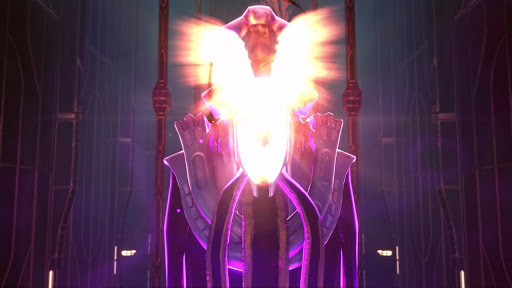About
Currently, my life is in a very bad place, and I would prefer the information remain relatively accessible to anyone wanting to know why the site is currently updating erratically and so on, hence why I just linked to a post explaining my current terrible conditions.
This section of this page will only exist for as long as the described issues remain in place. Ideally my life will properly straighten out and the site will be able to stay focused on its actual primary topics.
Speaking of, have the About Page that existed before I edited in the preface:
-------------------------------------------------------
In simplest terms, Vigaroe is a place for me to talk about video games and to a lesser extent broader pop culture.
Being a bit more specific, I prefer to focus on the game design; how the mechanics work, what the implications of the mechanics are, how this shapes the way a player is liable to play. In practice this means my posts often have a substantial part of the functionality of a traditional game guide; I document a lot of data and explain mechanics interactions, and then talk out implications in regards to the player's potential choices. Efficiency, reliability, how different options perform given the mechanical rules, etc. My personal focus is often on the design implications ("This option that exists in the game is basically a technicality because the player can't get a hold of it until they're past the part of the game it would be applicable to, and ideally this wouldn't have happened"), but the game guide functionality is organically there regardless. ("You, as a player playing this game, should just ignore this option, because there isn't anywhere it's actually useful in the game, for the reasons I just laid out")
I also have a habit of discussing a game's learning curve and how it goes about teaching (or failing to teach) the player concepts through natural gameplay and secondarily through in-game explanations. Partly just to ground my statements about mechanics ("The game design is liable to lead a player to guess this mechanic works in a very different way from what I just laid out"), and partly because the consideration of how a game goes about teaching its players is something I wish got more analytical discussion from people in general than I tend to see.
Conversely, I tend to give the emotional experiemce aspect of games (and other pop culture) short shrift. This is for two reasons that are arguably the same thing; the first point is that I'm often in intense disagreement with how other people will characterize the emotional experience of a given piece of media; I see dozens of mainstream reviews say This Game Is Scary To Play, and I play it and am never scared, or whatever. Correlated to that is that I'm very aware of how often emotional response to media is intemsely personal; I'm not willing to present my emotional experience with a game (or other piece of pop culture) as a universal norm, because it isn't, and by a similar token I'm largely reluctant to engage in commentary on the effect of decisions on audience experience because I'm too aware that a given response to a given element is often rooted in things external to the product itself.
As my focus really is on design, on how people creating things can hone their craft to produce better products, it seems distinctly unfair and unhelpful to say, "I didn't have a specific experiemce while playing this game because of personal history, and you should modify the game so it will elicit that specific experience from me in specific".
As a different point of 'about-ness', I should probably explicitly point out that my singular pronouns implying a singular individual behind this site are in fact largely accurate. I've gotten help on specific bits from assorted people over the years and made an effort to credit them where applicable, and of course there's inevitably many more people who deserve credit for all the work that goes into the internet and the media I'm discussing and so on, but by default posts are assembled by me from start to finish; Vigaroe is not a team project. (At least, as of this writing)





Comments
Post a Comment